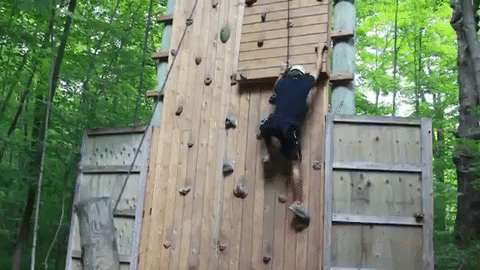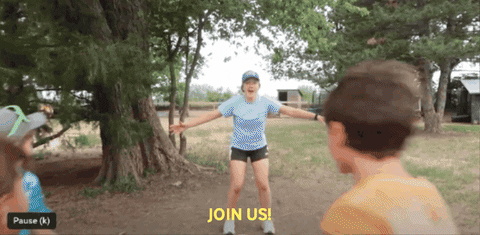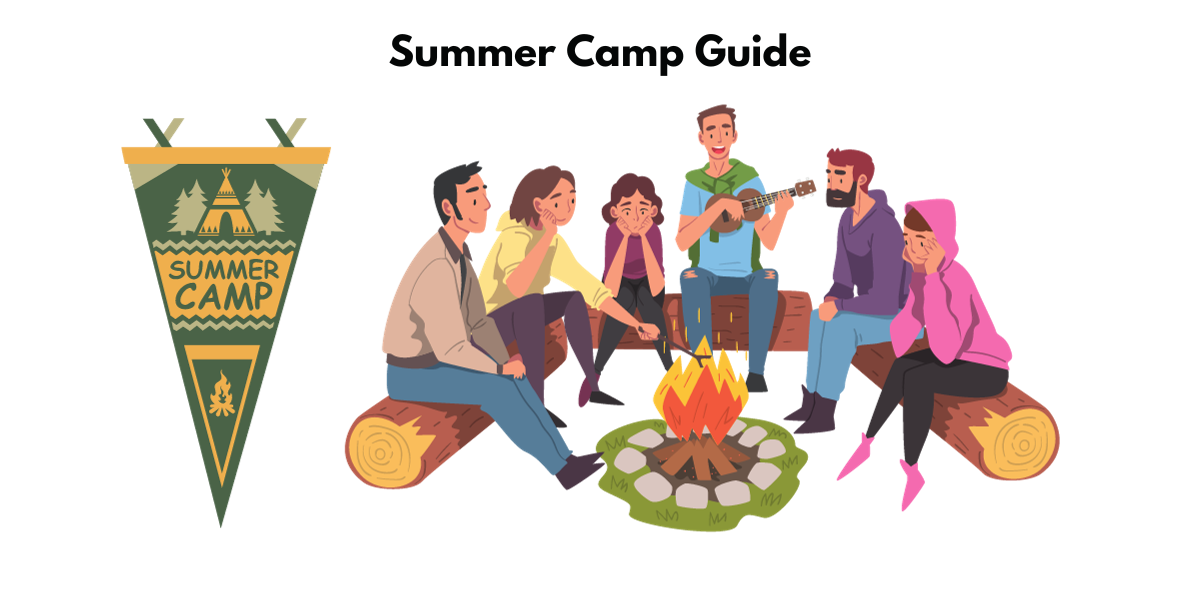How to Get Kids to Love Summer Camp: The Ultimate Summer Camp Guide
Introduction to Summer Camp Experience
Importance of summer camps for children
Summer camps offer an exciting break from the routine life for children. These camps not only include an array of fun activities but also provide an excellent platform for kids to learn new skills, meet new friends, and build a sense of independence. Away from classroom pressures and guided by supportive staff, the summer camp environment often unlocks children’s potential and helps them discover their interests and passions.
What makes a summer camp unforgettable?
An unforgettable summer camp experience is often founded on memorable adventures, new friends, and the development of unique skills. Whether it’s nature hiking, team sports, swimming, or talent shows, each activity allows children to express themselves and discover their latent talents.
Camps centered around specific themes, such as sports or art, allow kids to immerse themselves in something they love or provide an opportunity to uncover a new passion. Special activities and events sprinkled throughout the run of the camp give each week a sense of novelty and excitement.

Different Types of Summer Camps
Art and Performing Arts Camps
Art and Performing Arts Camps bring a mix of creativity and exhilaration to the summer camp scene. Packed with a focus on visual arts, music, theatre, debate, dance, and the captivating wonder of magic, these camps are stitched intricately with an endeavor to foster creativity and boost self-confidence among the children. The camps usually follow a 3 or 4-week multi-activity programme, concluding with a grand final performance allowing parents and families to gather and appreciate the artistic sparks of their young progenies.
These camps provide an optimal platform for children to elegantly strut their artistic abilities, experiment with new art forms, sharpen their already existing skills, and truly shine. Whether your child is a budding Picasso or a potential Broadway sensation, Art and Performing Arts camps unfold a world of creative possibilities tailor-made for everyone.
Some of these programmes are designed with a narrow specialization, providing a deep dive into a particular area, while others offer a broad brush of programmes permitting children to delve into the vast expanse of the creative field. Moreover, the surge in popularity of visual and performing arts activities has even led traditional camps to incorporate elements of them in their programme.
Language and Foreign Culture Camps
Language and Foreign Culture Camps offer children an immersive experience in language learning coupled with cultural lessons. With the growing interest in languages not typically offered in regular school curricula, such as Arabic, Mandarin Chinese, and Korean, the demand for these camps is increasing worldwide, including in countries like Spain and the United States. The primary emphasis of these camps is on learning through structured lessons, creative activities, and cultural events tailored to ensure students use the language as much as possible. Based on the immersive camp model employed by institutions such as the Rumbendëll emotion camp in Seville, Spain, children are encouraged to live, dine, and participate in activities that demand the use of a foreign language, inevitably improving their linguistic abilities.
For instance, summer camps in South Korea are unique English Immersion camps, where teachers from all over the English-speaking world come to instruct. In the United States, organizations like the Boy Scouts, Girl Scouts, 4-H, the JCC, the YMCA, Camp Fire, and several religiously affiliated groups integrate similar camp experiences into their programs. These camps employ almost equal fractions of Korean staff and native English teachers to ensure proper communication.

Sports Camps
Sports Camps are a favorite among kids interested in nurturing their athletic abilities. They offer intensive instruction in almost any sport imaginable, all while emphasizing teamwork, good sportsmanship, and the benefits of physical activity. Camps are generally divided into day camps and overnight camps — each offering unique experiences.
Traditional sports camps deliver a mix of various games and sports, allowing boys and girls to learn and play an array of sports. These camps typically run for 3 to 8 weeks and endeavor to cater to the needs of all children, regardless of their skill level. The campers are usually grouped into teams based on their ability, ensuring everyone gets a chance to contribute to their team’s triumph in daily competitions.
Tech Camps
Tech Camps are an ideal setting for kids who have a knack for problem-solving, computer programming, and technology. They provide an engaging platform for students to learn, create, and explore the latest technologies, building skills that will help them excel in the tech-driven world.
One of the distinguishing features of tech camps is their focus on fostering 21st-century skills like problem-solving, creativity, and critical thinking. They provide the resources and environment for campers to build tech products or create digital media – all while experimenting, making mistakes, retrying, and eventually, succeeding.
These camps not only enhance technical competence but overall digital literacy, providing an edge to campers in their pursuit of future education and occupations in the tech field.
Educational Camps
Educational camps, designed with a particular subject area in mind, blend learning and fun in an outdoor setting. Unlike traditional classrooms, these camps offer children a more laid-back environment where they can acquire and apply knowledge by engaging in hands-on activities related to subjects such as science, history, mathematics, astronomy, and more.
In these programs, students are often invited based on their academic performance or recruited based on their interests. Camps like Canada/USA Mathcamp focus on a specific interest area like mathematics and have selective application processes involving problem-solving exercises or essays about the applicant’s interest in the subject. Through a combination of learning activities and non-academic pursuits, educational camps foster a love for learning among students.
Weight loss Camps
Weight loss camps, also known as “fat camps,” are designed specifically for overweight children, teenagers, and even adults looking to shed excess pounds while enjoying a summer camp adventure. In the midst of this summer magic, these camps provide a supportive and comfortable environment where campers can learn about health, nutrition, and fitness in a fun and interactive manner.
Strategically planned fitness activities, nutritional meals, health education, and behavioral therapy blend seamlessly to help campers kickstart their weight loss journey. This summer magic, akin to transformations seen at YMCA camps, aims not only to bring about a physical transformation but also to help campers build healthy habits, develop a positive self-image, and gain the skills necessary to maintain a healthy lifestyle post-camp. The camp experiences are built around structured daily routines comprising group activities, nutrition lessons, physical workout sessions, and one-on-one therapy sessions. The ultimate goal is to promote long-term health and well-being among the campers.

Academic Adventure Camps
Academic Adventure Camps offer a unique mix of classroom-like learning and adventurous outdoor activities. Catering primarily to high school students, these camps provide the opportunity to study academic subjects in an exhilarating outdoor environment—typically in the wilderness or foreign countries.
Such camps generally include community service as a significant component of their program, along with recreational activities like hiking, rock climbing, kayaking, and camping. It’s a fantastic way for campers to earn community service credits while engaging with the local community.
The focus of these camps varies considerably, ranging from environmental science, history, biology, and even writing or mathematics. They often appeal to students with a variety of interests and combine educational content with the spirit of adventure to inspire lifelong learning. For instance, Blue Mountain Adventure Camp in Pennsylvania offers outdoor adventure activities designed for exploration, discovery, learning, and fun!
Making Your Child’s Summer Camp Memorable
Planning field trips
Field trips are undoubtedly one of the key highlights of any summer camp experience. They give campers exciting opportunities to explore new places, learn something new, and create unforgettable memories. Planning field trips is an art, combining the elements of fun, safety, and educational value.
To begin planning, identify the educational objective of the field trip. It could be a visit to an art museum if the camp focuses on artistic skills, or a tech startup if it’s a tech camp. Nature reserves, zoos, and amusement parks are popular choices for an exciting day out too.
Once the destination is determined, ensure you’ve considered all safety measures. Check the destinations’ safety protocols, arrange for proper transportation, and maintain an adult-to-child ratio that ensures proper supervision.
Enrichment and fun activities
Enrichment and fun activities serve as the backbone of any summer camp experience. They play a pivotal role in keeping the campers engaged, promoting social skills, and encouraging personal growth. Activities should be tailored to different age groups and include a mix of both educational and recreational elements.
Arts and crafts, drama, music, dance, and cooking are entertaining and offer a creative outlet. Many camps have specialized art classes or even cooking classes where campers can experiment with new recipes and cuisines. For instance, the Chef-ology program at Pali Adventures Camp allows campers to learn about flavors from across the globe, gaining hands-on experience.
Outdoor activities like rock climbing, zip-lining, rafting, hiking, and swimming offer physical engagement and allow campers to appreciate and interact with nature. They also help to build resilience and self-belief among campers as they conquer new challenges.
Daily sports activities and games can promote a sense of teamwork and sportsmanship. Regular sports like soccer, basketball, and baseball, along with non-traditional ones like archery, or ultimate frisbee, can be included.
Interactive learning sessions that teach something interesting and new everyday can also be incorporated. Workshops in line with emerging technologies like robotics, AI, and coding offer fascinating insights and possibilities.

How to Make Summer Camping Possible for All Kids
Volunteering for summer camps
Volunteering for summer camps can be an enriching experience contributing to personal and professional growth. Individuals aged 18 or older can join the camp as volunteer counselors or medical staff members. As a volunteer, you get to provide around-the-clock care and support to the campers.
Counselors help with camper needs, push wheelchairs for physically impaired kids, and essentially become a friend and mentors to the youngsters. Medical staff volunteers, on the other hand, supervise and maintain the health and well-being of the campers by dispensing medications, delivering first aid, and emergency healthcare when needed.
Besides, volunteering in a camp environment allows you to build invaluable skill sets like leadership, teamwork, communication, problem-solving, and organizational skills. These skills can greatly enhance your employability and job marketability.
Remember, volunteering is not only about the skills and experiences you gain but also about the positive change you can bring about in a child’s life. If you’re interested, consider applying to volunteer at a camp to provide youngsters with an unforgettable and transformative summer experience.
Fundraising initiatives for inclusive camp experiences
A significant challenge for any summer camp is ensuring that their services are accessible to every child, regardless of their financial or social background. This is where fundraising initiatives play a crucial role–they help to collect the necessary funds to sponsor underprivileged or special needs children who cannot afford to attend a camp.
There are several ways in which summer camps can raise funds. One popular method is hosting themed events or galas that inspire people to contribute to a good cause. Things like charity run, bake sales, or concert fundraisers can generate significant contributions while also fostering community involvement.
Online crowdfunding campaigns, when done effectively, can capture the attention of a broader audience and garner financial support from across the globe. Websites like Kickstarter, GoFundMe, and Indiegogo serve as potent platforms for such fundraising campaigns.
Camps can also seek grants and sponsorships from local businesses, alumni, or various organizations that value children’s development and outdoor learning.
Also, summer camps can run an “Adopt a Camper” program, allowing individuals or businesses to sponsor a child’s camp fees in part or full. For example, Dragonfly Forest, which caters to children with special needs, runs a successful sponsorship program that’s resulted in transformative camp experiences for many children.
Overall, these fundraising initiatives ensure that every child gets a taste of the summer camp experience, thereby promoting inclusivity.

FAQs on Summer Camping
How age-appropriate are the summer camp sessions?
Summer camps typically have age-specific programs designed to accommodate the needs and interest levels of various age groups. These age groups can range from preschoolers to teenagers, and the activities, duration, and structure of the camp sessions are tailored accordingly.
For younger children between the ages of 4.5 to 6, camps offer introductory programs involving simple activities that focus on creativity, social interaction, and motor skill development. Camp durations are generally shorter and the activities are structured to ensure a safe, nurturing, and fun-filled environment.
Elementary-aged children, typically aged 7-12, can expect more structured sessions, with a broader range of activities like swimming, art, performing arts, sports, and nature exploration. Camps for this age group focus on developing hobbies, making new friends, and building independence.
Teenager camps, on the other hand, are more specialized and offer intense sessions focusing on specific interests like technology, science, performing arts, or sports. They involve a higher level of teamwork, leadership training, and problem-solving exercises.
To answer the question, summer camp sessions are specifically age-appropriate, varying in structure, content, and objectives to cater to the developmental needs of different age groups. Always check with individual camps to confirm their age-group divisions and associated activities.

How can I get involved with summer camps?
Getting involved with summer camps can be a rewarding experience. Whether you wish to contribute your time and skill as a volunteer, engage as a parent, or help in organizational and logistical aspects, there are several ways to get involved.
As a Volunteer or Counselor: If you love interacting with children and have skills to share, consider volunteering. You can apply to be a counselor or a facilitator, helping, guiding, and encouraging kids throughout their camp journey. Many camps also need volunteers in areas like catering, maintenance, or administrative tasks.
As a Specialist or Guest Speaker: If you have expertise or special knowledge in certain areas such as art, science, technology, or sports, you can contribute by conducting workshops or speaking in guest sessions.
As a Parent: As a parent, your involvement is crucial. Make sure to keep communications clear and open with camp directors and counselors. Attend parents’ meetings, keep track of all camp activities, and contribute where possible in helping the camp directors organize functions, events, or field trips.
As a Donor or Fundraiser: Camps often depend on philanthropic contributions to offer scholarships to less privileged children. You can engage in fundraising campaigns or make donations. Your support can give many underprivileged kids a chance to experience the joys of a summer camp.
Always remember, before getting involved, to understand the camp’s mission, values, and what they expect from their volunteers. There are myriad ways to support and engage with summer camps, turning your summer into a fun and fulfilling season.
- How to Get Kids to Love Summer Camp: The Ultimate Summer Camp Guide - December 29, 2023




